Building A Brand Around High-Quality Products: The Entrepreneurship Journey Of Peter Mann
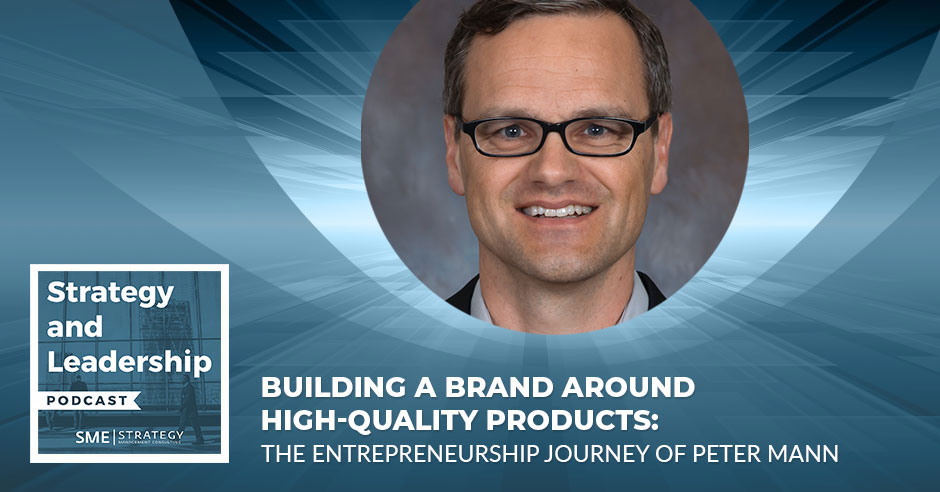
A successful entrepreneurship journey is all about focusing on a high-quality product, being aware of the needs of your target market, and keeping a healthy working culture within your own team. Although Peter Mann did not plan to be an entrepreneur from the get-go, he found success in his chosen industry by focusing on these key areas. Joining Anthony Taylor, he looks back on how he found his entrepreneurial spirit by accident and started the air purifier manufacturing business Oransi. Peter also shares some strategies for building a small yet highly productive team, as well as the right approach to business scaling as he now makes his mark across Canada and the United States.
Listen on Spotify: https://open.spotify.com/episode/6OmzCqD3Y4IZTjcoFoFKcM?si=f56a9a37a34c4336
---
Watch the episode here
Listen to the podcast here
Building A Brand Around High-Quality Products: The Entrepreneurship Journey Of Peter Mann
In this episode, I'm joined by Peter Mann, who is the Founder and CEO of Oransi. Peter, how's it going?
It's going great. Thank you so much for having me.
I appreciate getting to chat with you. I was intrigued by your business. At the time we had booked it, you're in the business of doing air cleaning machines and then the world is covered by smoke from all over the world. I was interested in hearing about your journey as a leader, as an individual, and what it's like expanding into this market in “post-COVID.” I'm looking forward to our conversation. Why don't you tell our readers a little bit about Oransi and you and then we'll get into the interview.
I started Oransi in 2009 and my interest in air purifiers and air cleaning was because my son struggled with asthma as an infant. I wanted to make products to clean the air to make his life better and people like him better. Over the last several years, we've designed and made a number of different air purifier products. Our focus has been on the US-Canadian market mostly for consumers.
COVID changed things in terms of the market blowing up. We need to clean the air viruses. We are in the process of reshoring manufacturing, which is a whole new process. We're going to start to introduce products from the US to differentiate ourselves and get better control over our supply chain. Going back a little bit, if you went back 30 years or 25 years, I never would've thought I would've been an entrepreneur.
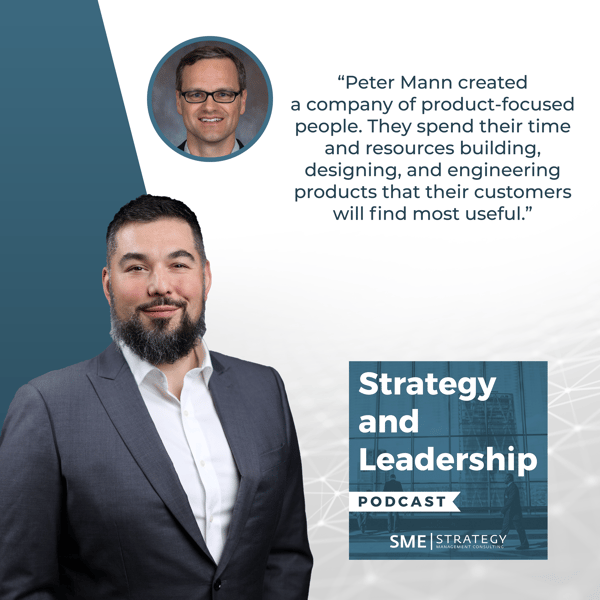
I have more of a Math Statistics degree. I went to college and got a Master's in Industrial Engineering but I went into the Navy out of college and went to the Middle East. That was pretty interesting. It wasn't something I anticipated happening in that sense. From there, I worked at two Fortune 100 tech companies, Tech Data and Dell, which is where I got my on-the-job MBA-type experience of how businesses work. In the early 2000s, during the dot-com bubble burst, that was my wish to start a business. I cofounded an eCommerce business in 2002 that I sold in 2009 to start the Oransi business.
That's quite the journey. There's a lot of stuff that you learned from those two students at Fortune 100. As a successful exit founder, how has the unexpected CEO journey been for you?
It's been good. I've always had an interest in having autonomy. That's always been a pull. I never took a Business class in college and I didn't have the confidence to do it. After ten years in the computer industry, the internet was starting to take off. One of my roles at the job was developing functionality for Dell.com. I knew a little bit about the internet, eCommerce, and launching products. We looked at what markets we could go into that are not as competitive.
In the early 2000s, it was $0.05 a click to advertise on Google for generic terms. The people who had websites were mom-and-pop and bulletin board sites. I was used to competing against HP with Dell and then I'm competing against these mom-and-pop shops for air purifiers, air conditioners, or water heaters. To me, it was a pretty exciting time. I took advantage of the opportunities of the moment.
You've got a team working with you. A segment itself has evolved from a niche into a hyper-competitive. Google is mastering the ability to extract money from its advertisers. How have you found that experience both leading a team from niche into competitive but also evolving sales landscape as you try to position your company and own its share of the market?
In terms of leading a team, I've got good people on our team that make it a lot easier. There's no drama. It's good communication, aligning around what our goals are, and having good people to execute on that. When I was in the Navy, you didn't pick your team. You're thrown into a situation and this is your team. Whereas in business, you create positions and then you hire the best fit for that position. You do a lot of communication to make sure we're all on the same page. That's the biggest thing.
In terms of our space, it has become more competitive. To me, it's a lot of getting the product and marketing right, having the right messaging, connecting with the customer, solving their problems, and having more of a unique selling proposition to where they make that emotional connection to you. Not only want to purchase your product but want to talk about your product. To me, that's the fun part of all of this.
You talked about evolving from having to compete with the likes of HP to competing with mom-and-pops and then you also talked about evolving as somebody who didn't think that they would be an entrepreneur because they had a math-science background. You're running this company and serving customers all over the US. What have been some challenges that you've experienced? What have been some key learnings that have shaped both how you do business but also how you approach leadership and growing teams?
What's been helpful is being open to change. The days of $0.05 of Google for a search term are long gone. The advertising mediums changed. Social media came up, and TikTok became popular. AI is a thing. Who knows exactly where that's going to go? You have to be flexible, open to change, and aware of what the environment is and where the opportunities are. It's the way things are. In the future, it’s going to be different. It's understanding the marketplace that you're in identifying where the opportunities are and what you want to execute.
That's a bit of a generic statement but it's true. You can't be of the mindset, “This is the way we've always done things.” You have to be open to taking in ideas from anyone. It's not the loudest, the most senior person that has the best ideas. It may come from anyone. It's being open and flexible to feedback and having a mindset of continuous improvement.
How have you instituted that? Your company is relatively small. It says 25 to 30 employees and it could be more or less. What have you put in place to be able to both solicit that feedback and then scale that nimbleness? At 25 people, it's relatively easy to be nimble because your departments are relatively small compared to your previous job where you would've had thousands or tens of thousands of people. Instituting a strategy would've been a lot harder and more cumbersome. What do you guys have as a system without giving away any of the secret sauce that helps you have that reactive and open communication with your team?
We use tools like Slack because we have several people that work remotely. We've got about half at our factory and the other half work remotely. It’s different when everyone's in the same building and you can all get together. When you have half your team spread across the country and make them feel part of a unit, it goes back to communication. Slack is a good tool for that.
We do a lot of videos and Google Meets but it's having a culture of accepting feedback and working with everyone. Everyone has the right intentions. Also, being open to ideas. If somebody has an idea, we can talk about it and then maybe explain, if it's not a great idea, what they're missing. We want to encourage ideas and have people contribute. It's good for the employee but it's also good for the company. Everyone wins in that sense if your voice is heard.
Everyone wants to be heard. You don't want to be silenced or shunned. People respond well to that. It's managing people, seeing people for the good that they bring, and getting clear on what the goals are and where we're going. Our team is 30 or 32. It's pretty small but as we start manufacturing here, we're going to crank up the people. We want to maintain that culture of inclusiveness and valuing different ideas and people. It's the way my business partner and I are wired so it's natural how the organization is.
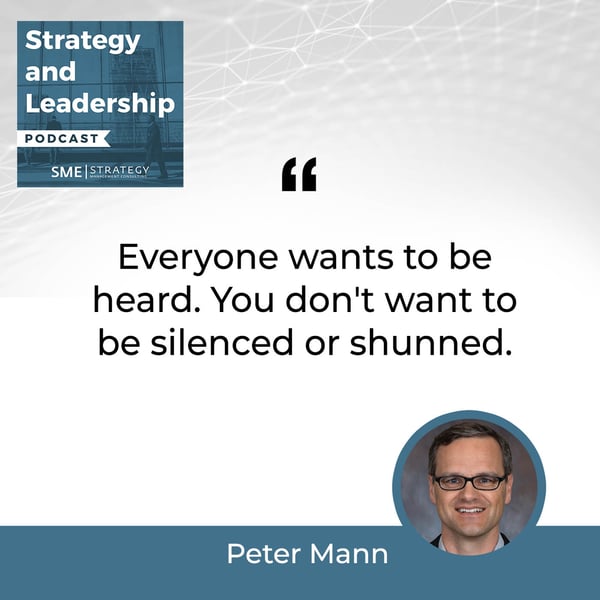
You strike me as a low-ego leader. You built this product because you saw the need both for yourself and other people. In your heart and how you hear it, you're like, “I want to make a good product that helps people if we get it out. Let's not make this more complicated than it needs to be.” That is a good trait of a leader but also, keeping it simple. We're changing the world but we don't need to have that altruism at the top.
We're making a product. We're selling it and getting it out. Let's make it good. When we were talking in the pre-show, you're like, “I want to make a good product that people can access. There's a competitive landscape. We're trying to create good products and a good niche without being overly complicated.” That's a great recipe for success, especially as the market gets more convoluted, competitive, and louder. You're trying to let your product speak for itself in terms of its design, functionality, and benefits. That's cool.
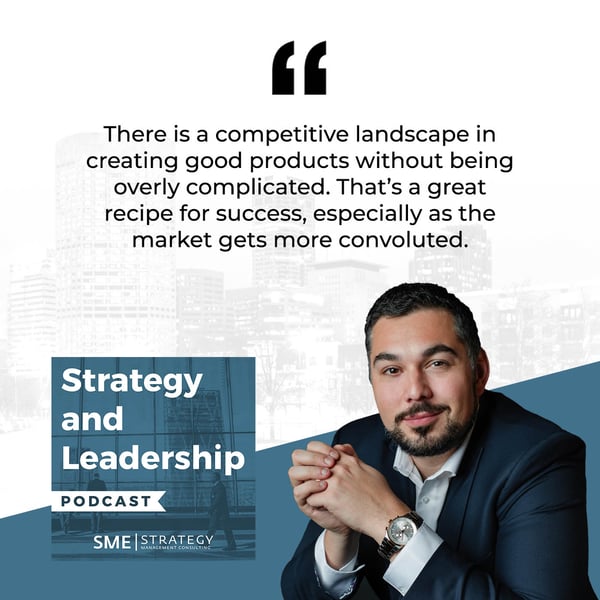
Thanks. We're all about low drama. It's exhausting. We make database decisions. We value input from other folks. I have a low ego. I complement that with high competitiveness. I don't know if that's unusual but I want to win. It's not about me. It's about the company or the team winning.
It's important because that's what you have to do. Is that one of your formal company values, no drama, or is that informal as in you bring it up as you go?
That's how we're wired. Life's too short to have crises and self-inflicted drama. It's exhausting. Why have it?
Life is too short to have crises and self-inflicted drama.
As we look at the culture of people and the organization, especially small ones, it is typically driven by the founder, the founder's beliefs, and in this case, you and your cofounder. What are the behaviors that you want and finding the right people for them? It’s critical, especially as you grow in scale, that you're able to maintain that culture, belief, low drama, no drama belief, among other things, high quality, and high value as you hire and scale people.
I'll take this opportunity to thank our newest partner sponsor, Affinity Staffing, which is a staffing agency here in Vancouver. For all of you reading, if you're looking to elevate your talent and growth, they can provide some IT services and staffing for you. One of the reasons I thought they'd be a great partner is they're friends of mine. Shout-out to Daniel. If you're in the US, you can take advantage of cost benefits by hiring in Canadian dollars. It's that $0.33 on the dollar. You get a discount, getting high-quality talent.
As Peter was saying, you guys are a remote-distributed staff. That's where a lot of teams are moving, remote, and distributed. It is not for everybody but if you're interested, they'll provide a consultation for your staffing needs. Visit them at Affinity-Staffing/SME and they'll hook you up as friends of the show. Peter, what's it been like going from you, working on this business, growing, scaling, and building as a team? Has it been a natural process? Has it been challenging? Explain to me those stages of growth as you've started to make your mark across Canada and the US.
To me, it's natural. When you come from Dell, which is pretty huge, you go from a job where it's a narrow scope but you have a pretty big impact and startup essentially. You have to do everything. It's not Dell so you don't have all the resources. For me, it's been pretty fun because it's a challenge. I naturally have a good sense of all the pieces that need to get done and how you execute against doing those.
In a sense, it's a bit different than working for a big company but to me, it's more fun because you control your destiny and you can work on what you want to work on. It's getting to me more the autonomy of getting energized by that and it's not work. It becomes fun. To me, it's like a real-life game, competing against other brands or better servicing customers.
Entrepreneurship is a bit different from working for a big company. It is more fulfilling because you control your destiny and can work on anything you want.
It's super fun. I'm excited to see how you win this game because it's a cool product in a niche space. I also like to win, especially when you're doing those gorilla-style things. I'm excited about that. As we finish up, what are 2 or 3 pieces of wisdom that you would share with either a new CEO or CEO who's in your position as you're growing and playing this game of business? What would you recommend to support them as they move forward?
For us, we make a product. What I've learned in my years of doing this is that you have to build marketing into your product because you'll spend so much on advertising. If you have a MeToo product or it's accessible, there are a lot of Chinese factories that make products, build catalogs, and shop it around and you can put your name on it to where there's such a low barrier for entry.
What that means is anyone can get it. Your advertising is going to be astronomical. A better way that takes more work, time, and energy is to build marketing into the product and have something that best connects with the customer for your success. You can't advertise your way out of an average product. It's a tough way to live.
The second thing is if you're developing a product, it always takes longer and costs more. We go into it with certain expectations. I have to keep learning that one. It’s like, “This thing is taking longer than we wanted it to.” I've talked to enough people where that's pretty much the norm. It's having proper expectations, especially if you're building new products or services. It tends to take longer and cost more than what you'd hoped it would.
It sounds also like doing those things provides you the grounding to have the business the way you are because you're building the entire value chain and it helps you control more of the things. It's more work on the front end but a lot easier on the backend like most things are. Peter, where can people get a hold of you, pick up one of your products, and connect if they want to check?
I'm on LinkedIn. It's Peter Mann. Our website is Oransi.com.
Thank you, Peter. I appreciate you being here. One of the cool things I love about your product is you're like, “Our product is good. It's available for people.” It’s understated. It's cool that you've created a company of people who are so product-focused. The best companies in the world truly have built, designed, and engineered a good product. Everything I've talked to you both on the recording and off speaks to that. I wish you guys nothing but the most success as you move forward, especially at a time when air quality's crappy and people need support. I appreciate you being here.
Thank you so much.
My guest is Peter Mann who is the Founder and CEO of Oransi. One of the things I highlighted is being able to focus on a high-quality product, being aware of how you want your company and your people to run, and creating a great environment around that. If you're looking at putting a strategy session together for your people to formalize your vision, values, and what you want that strategy to be, be sure to reach out to SME Strategy for help and support there. We're booking into November 2023 so call before that. I appreciate you being here. Thanks for reading. Until next time.
Important Links
About Peter Mann
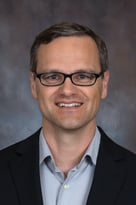
Peter Mann is the CEO & Founder of Virginia-based Oransi, a leading air purification company known for its efficient, intuitive and reliable products for consumers, schools, organizations and businesses. He also is the Chair of the Association of Home Appliance Manufacturers’ Air Cleaner Council. In 2021, Oransi merged with Aviemore Technologies and is now a motor technology company with a clean energy mission. Oransi’s new manufacturing facility in Radford, Virginia is making products in the USA with advanced motor technologies. Previously, Peter was the Founder & CEO of the Austin, Texas-based Alen Corp., an air purification company he built, and after 7 years had a successful exit. He went to college on a Navy ROTC scholarship and then served 4 years, including a tour in the Red Sea during the First Gulf War. He was a communications officer and then gunnery officer on the USS McCandless. Peter is late diagnosed autistic and now advocates for autism awareness in the workplace.


